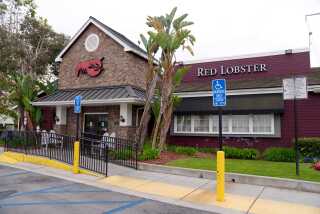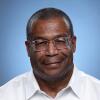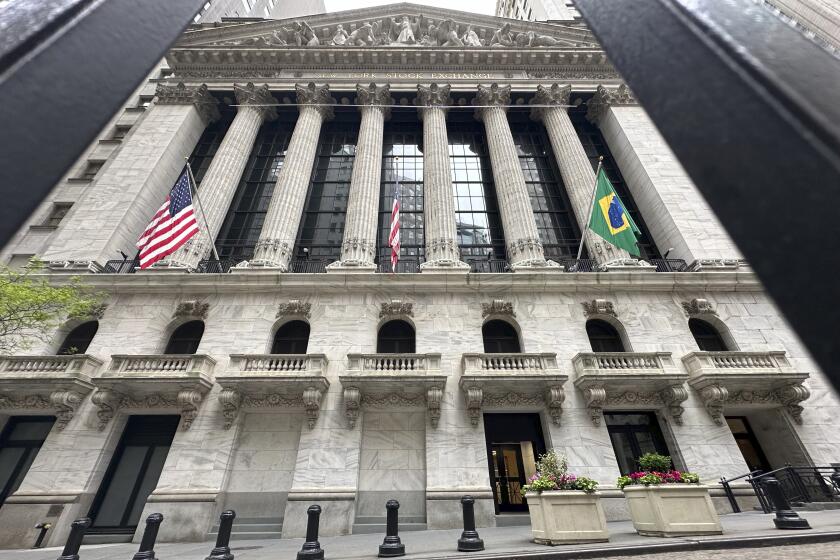Pressure on Tenet Chief to Resign
Jeffrey C. Barbakow, the chief executive who led Tenet Healthcare Corp. back from the brink of disaster nine years ago, is facing increasing blame for the company’s current woes and mounting pressure to resign.
Sheryl Skolnick, an analyst at Fulcrum Global Partners in New York, said Tuesday that Barbakow’s chances of remaining as chairman and CEO were “problematic” in the wake of disclosures about a government audit of Tenet’s Medicare billings and a separate federal investigation of heart surgeries at its hospital in Redding.
“I don’t see how he regains the trust of investors,” Skolnick said. “I think it has gone too far.”
One institutional shareholder, Colorado-based Marsico Capital Management, last week sold all of its more than 17 million shares of Tenet stock -- about a 0.3% stake in the company -- after news of the Medicare billing issues arose.
“Investors need to know that they can trust the institutions they are involved in,” CEO Thomas Marsico said Tuesday in an interview. He said that reinvestment in Tenet later would depend on a number of factors, including “a total change in the management team.”
Tenet spokesman Harry Anderson said Tuesday that rumors that Barbakow was going to resign were “absolutely false,” adding that the CEO was working hard to produce a more reliable, longer-term profit outlook based on less aggressive Medicare billing practices.
Just a few weeks ago, Santa Barbara-based Tenet, the nation’s second-largest hospital chain, was one of the stars of the health-care business. But that was before word surfaced of the Medicare audit and the inquiry in Redding, where two doctors are suspected of performing numerous unnecessary heart operations.
Tenet also is getting questions from investors about the sudden resignation last week of its chief operating officer and chief financial officer, as well as what they say was a lack of prompt public disclosure of the Medicare situation and the Redding inquiry.
The company’s stock has plunged by two-thirds in the last two weeks, erasing $15 billion in equity. It closed Tuesday at $14.98, up 98 cents on the New York Stock Exchange.
Analysts say Tenet and Barbakow face a crisis of confidence exceeded only by the dark days of 1992 and 1993, when the firm, then known as National Medical Enterprises, was shaken by a series of fraud scandals. Some say they aren’t sure whom to trust or what to believe when it comes to Tenet -- and they say Barbakow must share the blame for that.
Central to Tenet’s Medicare billing problems are so-called outlier payments. These are collected from Medicare, in addition to fixed reimbursements, to help hospitals defray expenses for unusually costly treatments such as cardiac procedures. Tenet reported that its hospitals collected $763 million in such payments last year.
Barbakow has said he was unaware of the extent of Tenet’s use of the Medicare billing program. But that has not allayed the concerns of many shareholders, analysts and other observers who are asking: If Barbakow didn’t know, why didn’t he? And if he did know, why didn’t he address it?
“He looks bad in either scenario,” said analyst Frank Morgan of Jefferies & Co.
But Morgan also said Barbakow could weather the storm if he quickly delivers sound and persuasive earnings projections.Another factor in Barbakow’s favor, Morgan added, was his role in turning Tenet around. after he was brought in as CEO in June 1993.
The firm settled federal fraud charges in its psychiatric hospital division in the mid-1990s. As part of the settlement, Tenet agreed to develop an ethics program. Since then, Barbakow has led a major expansion of the hospital chain, pushed tough negotiations with health insurers to raise payments and tightened up bill collections.
Barbakow earned $4.5 million in salary and bonus last year -- four times that of the CEO of HCA Inc., the nation’s largest hospital chain.
Before joining Tenet, Barbakow was a top Merrill Lynch Capital Markets investment banker in Los Angeles who was tapped in 1988 at age 44 by billionaire Kirk Kerkorian to run movie studio MGM/UA. One of his areas of expertise at Merrill Lynch had been developing partnerships to invest in films.
Barbakow was close to Kerkorian, later serving as a director of his MGM Grand hotel and casino company.
During his brief tenure in Hollywood, Barbakow was known more as a financial executive than a creative one. Still, the company’s “Rain Man” captured the Academy Award for best picture under Barbakow’s regime.
Barbakow became a familiar figure in Hollywood circles, investing in the trendy Maple Drive restaurant when it opened in 1989, along with such partners as the late actor Dudley Moore and producer Tony Bill. At Maple Drive, he was given the ultimate honor a restaurant can bestow on a celebrity when it named a dish after him: the “Barbakowed Duck Salad.”
Barbakow helped engineer the ill-fated $1.3-billion sale of MGM in 1990 to Italian financier Giancarlo Parretti, reportedly receiving $20 million as part of the deal. Parretti had the studio seized from him within a year by French bank Credit Lyonnais when he defaulted on his loans. Kerkorian bought the studio back in 1996 from Credit Lyonnais and still owns it.
After MGM, Barbakow returned to investment banking at Donaldson, Lufkin & Jenrette, eventually joining the board of National Medical Enterprises as an outside director.
Fulcrum’s Skolnick said she has met with Tenet investors, who have expressed disbelief and outrage over the latest revelations. But she added that there are others who seem neither shocked nor angry.
“Some people are, sad to say, almost expecting this these days,” she said. “It’s a depressing commentary on the quality of corporate management.”
Times staff writer James Bates contributed to this report.







